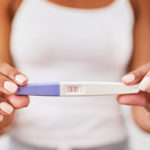No one can prepare you for the health changes that your body faces during pregnancy. Even if you have gone through prior pregnancies, many women report having completely different experiences between each of their pregnancies. Health is so important during pregnancy. Whilst you have some control over your health during pregnancy, such as what your diet entails and how much physical activity is done, a lot of the health changes that happen to your body can not be controlled. From healthy hair growth to less desirable side effects such as chronic backache, the many changes that occur during pregnancy are all part of the ride!
Some women see pregnancy as a piece of cake, but there is still a large portion of women who struggle with the changes that pregnancy brings. Both are completely normal. Questioning the changes that occur in your body is likely to occur, but we have gathered a list of the most common health changes that occur during pregnancy. If you do not see any of the symptoms you are experiencing on the suggested list, that is okay! Speak with your midwife or doctor to make sure everything is okay, but as mentioned each woman experiences a completely different experience.
Hair growth
One of the most favored changes that are likely to occur during pregnancy is hair and nail growth. Due to the increased hormones that are prevalent in the body during pregnancy, you are likely to notice your hair becoming much thicker and healthier. Hair growth however is not selective, therefore you should expect to see hair growth all over the body, even in areas you may not have experienced before being pregnant such as the neck and the back.
Oral implications
During pregnancy, your teeth and oral health are likely to take a toll due to the transfer of calcium that is being passed over to your baby as well as hormone changes leading to varying reactions to bacteria present in your mouth. Also, blood volume can increase by up to 50% its volume during pregnancy which can lead to bleeding gums. The gums swell due to the increase in blood flow which can progress even further to gingivitis and bad breath. During Pregnancy, you need to be extra careful with your dental health, and visiting a dentist regularly or if early signs of issues occur is recommended.
Stretch marks and dark lines
Stretch marks can occur on the body whether you are pregnant or not. They are a natural and beautiful sign of your body growing. Stretch marks are most likely to occur in areas such as the stomach, breasts, and thighs, but as your whole body experiences a body fat increase stretch marks can be prominent just about anywhere. Also, a lot of women develop a line in the center of their stomach known as the “linea negra” which occurs due to hormone changes. On average this line disappears within a few months after giving birth, but again if it stays for longer this is also natural for some women. Skin changes to some degree are inescapable, but taking measures such as staying hydrated, moisturizing your skin, and using special creams made for pregnancy changes have proven to reduce the signs of stretch marks altogether.
Feet growth
Additionally, some women have even experienced their feet growing during pregnancy. Swelling and pain in the feet are to be expected with the influx of weight and stress being placed onto the body, but many women have reported their feet growing up another size. The hormone estrogen is one of the main reasons why these changes occur, and it is also a prominent reason for the psalm of the feet feeling red and swollen. Also, fluid buildup is one of the more recognized reasons for foot and ankle swelling. The best way to tackle these changes is to regularly moisturize and massage the feet, and also consider wearing compression socks to increase blood circulation.
Bowel changes
Some of the most unfortunate health changes that women experience during pregnancy are bowel changes. With the reduced passageway of the bowels, constipation is a common theme during pregnancy. Drinking enough fluids and eating enough fiber can positively contribute towards easing any strain, but sometimes it is inescapable. Also, hemorrhoids are more likely to occur during pregnancy due to the pressure placed on blood vessels in the lower belly. This might be visible due to blood being present in the stool, and also irregular changes in the color of the stool. You should always consult your doctor if the changes have happened for a week or more, and also if you feel uneasy about any of the symptoms that are accompanying the changes.
Brain fog
Many pregnant women report experiencing brain fog when they have gone through pregnancy. It has not yet been precisely pinpointed as to what internal changes happen to cause this, but with the fluctuating hormones and lack of sleep due to possible discomfort, the experience of brain fog comes as no surprise. Your mental health during pregnancy is just as important as your physical health, so reducing any possibility of stress within your capability is recommended.
Anaemia
It is said that 52% of pregnant women develop an iron deficiency when pregnant due to the increased volume of blood that occurs without the same level of red blood cells being produced in concordance. Anemia is often out of your control if it occurs during pregnancy, but you can take supplements to restore your body to a healthy amount of iron, b12, and folic acid.
Tips for staying on top of your health
Good health during pregnancy is crucial to ensure safe birth and a healthy baby. You should have a complete understanding of what changes are occurring in your body during pregnancy. It is okay to feel confused about some of the changes that occur, and even upset that they are happening. Whilst many of the changes are natural and for the benefit of the growing fetus, there are steps you can take to minimize the impact that these changes have:
Always consult your doctor
First and foremost, you should always speak to your doctor to get an in-depth understanding of what changes you are likely to expect. If anything out of the ordinary happens, you should get in touch with a health specialist to confirm the changes are normal and are not a sign of any developing issues. Your doctor will also be able to provide you with the safest medicines to elevate any pain and discomfort.
Maintain a nutrient-rich diet
Your diet plays a crucial part in your health whether you are pregnant or not. Overloading your diet with nutrient-rich foods when pregnant is the best thing you can do for both you and your baby. There are foods you can’t eat or are recommended not to eat when pregnant, but aside from this, your diet should have a sufficient range of nutrients included within each meal.
Get your steps in
Exercising when pregnant is not spoken about enough, but it is so important to work on your cardiovascular health. You should not be doing excessive exercise when pregnant, but you should do low-intensity workouts such as walking. Aim to reach 7,000+ steps each day, and get lots of oxygen into your lungs which will otherwise be strained by your baby pushing on your internal organs.
Take necessary vitamins
Supplements and vitamins should be your friend when pregnant. Only take supplements that are approved by your doctor, but they are a great way to make up for anything your diet and blood are lacking such as iron, calcium, and magnesium.







